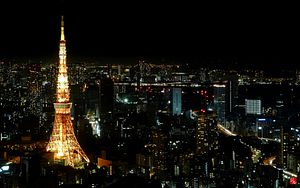Last week, the Chinese Lunar New Year period wrapped up with hopes that business would return to normal operations amid an outbreak of a novel strain of coronavirus (COVID-19) that has sickened nearly 60,000 in China. But in Japan manufacturers are struggling to secure parts and normalize production lines as Chinese factories delay reopening after the holidays.
As the epidemic drags on and inbound visitors vanish, Japanese department stores, as well as the aviation and tourism sectors, are feeling the pinch from a slump in sales.
The Lunar New Year is a peak travel period, with 1.4 million Chinese tourists travelling to Japan between February and March last year. Chinese nationals make up 30 percent of all Japan’s inbound tourists and over the years sightseeing spots, retail outlets, and restaurants have come to rely on the Chinese spending boom.
But the coronavirus outbreak has seen China ban overseas group tours for its citizens and Japan expand its travel ban on foreign nationals who have recently been to Zhenjiang and Hubei province. Japan’s Tourism Association estimates that 400,000 visa applications have been cancelled as a result of the prolonged suspension of flights between mainland China and Japan.
Meanwhile, the quarantined Diamond Princess cruise ship docked in Yokohama has reported 218 cases of coronavirus and numbers don’t appear to be slowing down.
The government launched a response headquarters and Prime Minister Shinzo Abe said he will take “all necessary steps” to address the economic impact of dwindling sales. A special task force compiled emergency measures to support small- and medium-sized local businesses such as hotels and inns, which are facing mass cancellations.
Financing worth approximately $4.5 billion will be taken from reserve funds for the current fiscal year. The government will prioritize urgent loans to companies that will make capital investments to production facilities affected by stagnant supplies from China.
Daiwa Institute of Research estimates that the short-term impact of the coronavirus could cause Japan’s national GDP to shrink by 0.2 percent if it takes three months for the spread of the virus to subside. The fall in Chinese tourists alone is expected to cost the tourism and retail sectors 200 billion yen ($1.8 billion).
Given the global reliance on industrial exports from China, the long-term impact on Japan’s economy is expected to stem from supply chain issues. If the outbreak takes one year to subside, the slowdown of the Chinese economy would cause a sharp decline in Japanese exports that could cause GDP to slide 0.9 percent.
Japanese companies operating in China has also been affected. Global clothing giant UNIQLO recently reopened 20 stores in China, but business at almost half of its 750 stores remains suspended. Retail chain Muji suspended operations at its 17 stores located in Wuhan in response to instructions from Chinese authorities.
On the other hand, at the request of Chinese authorities the Japanese supermarket chain Aeon continues to operate its five grocery stores. A photo shared last week showed fruit and vegetables on display and the company reported no items were out of stock apart from protective masks.
Supply chain disruptions have caught up with major Japanese automakers. Nissan Motors announced a temporary two-day suspension of domestic car production at its factory in Fukuoka prefecture in south Japan due to delays in the procurement of parts from China. Corporate activities in Beijing and Shanghai have resumed but it will take more time for full-scale operations to return to normal.
Toyota Motors announced a delay in reopening its factories in four Chinese cities, including Tianjin and Guangzhou, until after February 17. Honda and Mazda are scheduled to reopen Chinese factories this week.

































